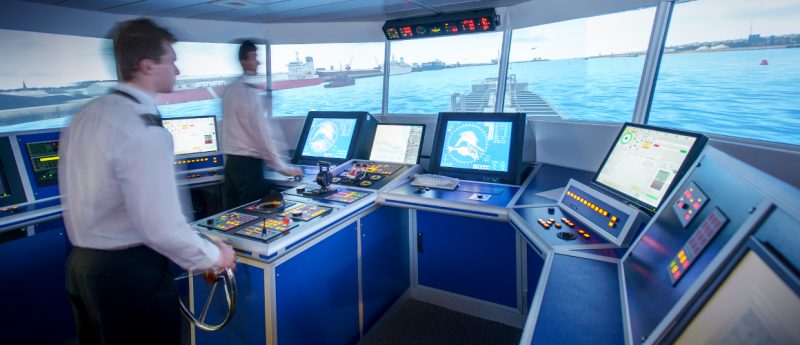
AI Will Boost Naval Command Decision-Making by Navigating Oceans of Data

CADA will distill massive amounts of intelligence data into ranked recommended actions for Naval commanders. © 2019 Getty Images.
CADA Program Will Offer Logistics Personnel Recommended Actions and Displays Associated Causal Factors
HRL Laboratories, LLC has launched the Causal Adaptive Decision Aid (CADA) project, which will distill massive data from multiple intelligence sources into a ranked list of recommended courses of action for Naval command center personnel. Computer scientists from HRL’s Information and Systems Sciences Laboratory are working with the Office of Naval Research to develop the new software system that will provide Navy personnel with fast and explainable recommendations to aid command decision-making. The software aims to reduce stress, lessen mental workload, and increase efficiency of logistics personnel tasked with rapidly analyzing dozens of layers of data from different sources.
“Once generated, the user can click on a recommended action from a ranked list and the program will provide a drill-down showing which causal factors led to that recommendation,” said Aruna Jammalamadaka, co-principal investigator on the project with Rajan Bhattacharyya. “CADA aims to provide understandable explanations for its results, which is an active area of research in the AI community. Instead of just knowing the machine’s decision and blindly following it, people want to understand why the machine made that decision, and be able to ask questions about possible alternate scenarios. These desired capabilities naturally lead us to causal discovery and reasoning methods, such as those used in CADA.”
CADA will determine optimal recommendations and causal factors using historical training data. “We don’t need the causal factors for decisions to be explicitly labeled in the historical dataset,” Jammalamadaka said. “We can simply train the system with prior decisions that were made and the data surrounding those decisions. For example, if CADA is asked the best location for a ship at sea to refuel, the system will only need to be trained on a set of refueling decisions made in the past and the associated data sources used to make them, such as weather, shipping routes, etc., without any specific information about the factors in the choice. During operation, the system analyzes the current incoming data sources, estimates the impacts of underlying causal factors, and creates a ranked list of best refueling locations.”
The CADA system will advance interpretable machine learning by revealing critical regions of intelligence data used to produce its lists of recommendations. CADA’s transparency will enable users to assess the validity of computations used on the data layers and the measures of the system’s computed confidence in each recommended course of action. CADA is expected to be used by Naval Logistics Readiness Centers, but can also be applied as a decision-making aid in other fields such as operations research or predictive maintenance.
Acknowledgement and Disclaimer:
This material is based upon work supported by the Office of Naval Research (ONR) under Contract No. N00014-19-C-2024. Any opinions, findings and conclusions or recommendations expressed in this material are those of the author(s) and do not necessarily reflect the views of the Office of Naval Reseach (ONR).
HRL Laboratories, LLC, Malibu, California (hrl.com) is a corporate research-and-development laboratory owned by The Boeing Company and General Motors specializing in research into sensors and materials, information and systems sciences, applied electromagnetics, and microelectronics. HRL provides custom research and development and performs additional R&D contract services for its LLC member companies, the U.S. government, and other commercial companies.
Media Inquiries: media[at]hrl.com, (310) 317-5000

